Related Research Articles

Pope Gregory XIII, born Ugo Boncompagni, was head of the Catholic Church and ruler of the Papal States from 13 May 1572 to his death in April 1585. He is best known for commissioning and being the namesake for the Gregorian calendar, which remains the internationally accepted civil calendar to this day.
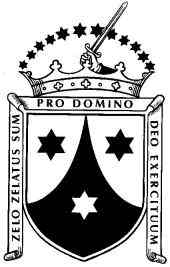
The Order of the Brothers of the Blessed Virgin Mary of Mount Carmel, known as the Carmelites or sometimes by synecdoche known simply as Carmel, is a Roman Catholic mendicant religious order for men and women. Historical records about its origin remain uncertain, but it was probably founded in the 12th century on Mount Carmel in the Crusader States. Berthold of Calabria, as well as Albert of Vercelli have traditionally been associated with the founding of the order, but few clear records of early Carmelite history have survived. The order of Carmelite nuns was formalised in 1452.

Albi is a commune in southern France. It is the prefecture of the Tarn department, on the river Tarn, 85 km northeast of Toulouse. Its inhabitants are called Albigensians. It is the seat of the Archbishop of Albi.
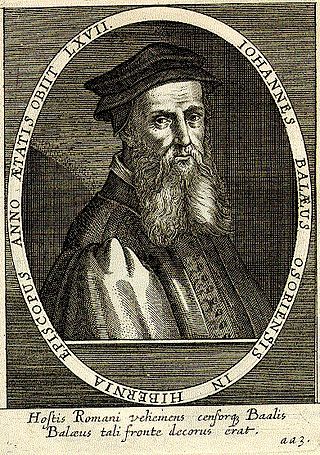
John Bale was an English churchman, historian and controversialist, and Bishop of Ossory in Ireland. He wrote the oldest known historical verse drama in English, and developed and published a very extensive list of the works of British authors down to his own time, just as the monastic libraries were being dispersed. His unhappy disposition and habit of quarrelling earned him the nickname "bilious Bale".
William Gregory may refer to:
The count of Toulouse was the ruler of Toulouse during the 8th to 13th centuries. Originating as vassals of the Frankish kings, the hereditary counts ruled the city of Toulouse and its surrounding county from the late 9th century until 1270. The counts and other family members were also at various times counts of Quercy, Rouergue, Albi, and Nîmes, and sometimes margraves of Septimania and Provence. Count Raymond IV founded the Crusader state of Tripoli, and his descendants were also counts there. They reached the zenith of their power during the 11th and 12th centuries, but after the Albigensian Crusade the county fell to the kingdom of France, nominally in 1229 and de facto in 1271.

The Third Order of Our Lady of Mount Carmel, also known as the Lay Carmelites, is a third order of the Carmelite Order of the Ancient Observance, established in 1476 by a bull of Pope Sixtus IV. It is an association of people who choose to live the Gospel in the spirit of the Carmelite Order and under its guidance. Its members are mainly lay people.
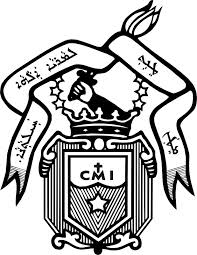
The Carmelites of Mary Immaculate abbreviated CMI, formerly also known as the Servants of Mary Immaculate, is a Catholic clerical religious congregation of pontifical right for men of the Syro-Malabar Catholic Church, and is the largest such congregation in the Syro-Malabar Church.
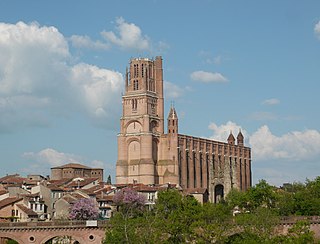
The Cathedral Basilica of Saint Cecilia, also known as Albi Cathedral, is the seat of the Catholic Archbishop of Albi. First built in the aftermath of the Albigensian Crusade, the grim exterior resembles a fortress, but the interior is lavishly decorated with art and sculpture, a very ornate choir screen, and walls in bright blues and golds, in the Toulousian or Southern French Gothic. It was begun in 1282 and was under construction for 200 years. It is claimed to be the largest brick building in the world. In 2010 the cathedral, along with its episcopal buildings, was designated a UNESCO World Heritage Site because of its unique architecture and the remarkable consistency in its design.
Raymond I was the Count of Limoges, Rouergue and Quercy, and Toulouse and Albi. He was the younger son of Fulcoald of Rouergue and Senegund, niece of William of Gellone through his sister Alda.
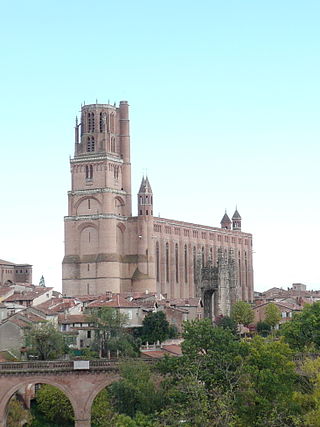
The Roman Catholic Archdiocese of Albi (–Castres–Lavaur), usually referred to simply as the Archdiocese of Albi, is a non-metropolitan archdiocese of the Latin Rite of the Catholic Church in southern France. The archdiocese comprises the whole of the department of Tarn, and has itself been suffragan, since the 2002 provinces reform, to the Archdiocese of Toulouse, a metropolitan archdiocese.

Claude Onesta,, is a French handball coach, responsible of France's Men's handball team from 2001 to 2016.
Robert Bale, O.Carm.,, was an English Carmelite friar and scholar.
John Bampton was an English Carmelite theologian of the fourteenth century.
Robert Baston, was an English Carmelite friar and prior of the abbey of Scarborough.
William Beckley was an English Carmelite.
The Musée Toulouse-Lautrec is an art museum in Albi, southern France, dedicated mainly to the work of the painter Henri de Toulouse-Lautrec who was born in Albi. The 13th century building was originally the Bishop's Palace of Albi Cathedral, next to it. It is part of the UNESCO World Heritage Site that includes the cathedral.
William of St Paul, also William de Paul was an English Carmelite, bishop of Meath in Ireland from 1327.
William of Littlington or Ludlington was an English Carmelite friar and theological writer. He became a Carmelite of Stamford, and took the degree of Doctor of Theology at Oxford. He opposed the division of England and Scotland into two Carmelite provinces which had been ordered at the Council of Narbonne in 1303, and was excommunicated. After four years' penance in Paris, he was made provincial of the Carmelite Order in the Holy Land and Cyprus in 1309.
William of Coventry was an English Carmelite friar and historian. He wrote on the history of Carmelites and other subjects.
References
![]() This article incorporates text from a publication now in the public domain : "Gregory, William (fl.1520)". Dictionary of National Biography . London: Smith, Elder & Co. 1885–1900.
This article incorporates text from a publication now in the public domain : "Gregory, William (fl.1520)". Dictionary of National Biography . London: Smith, Elder & Co. 1885–1900.